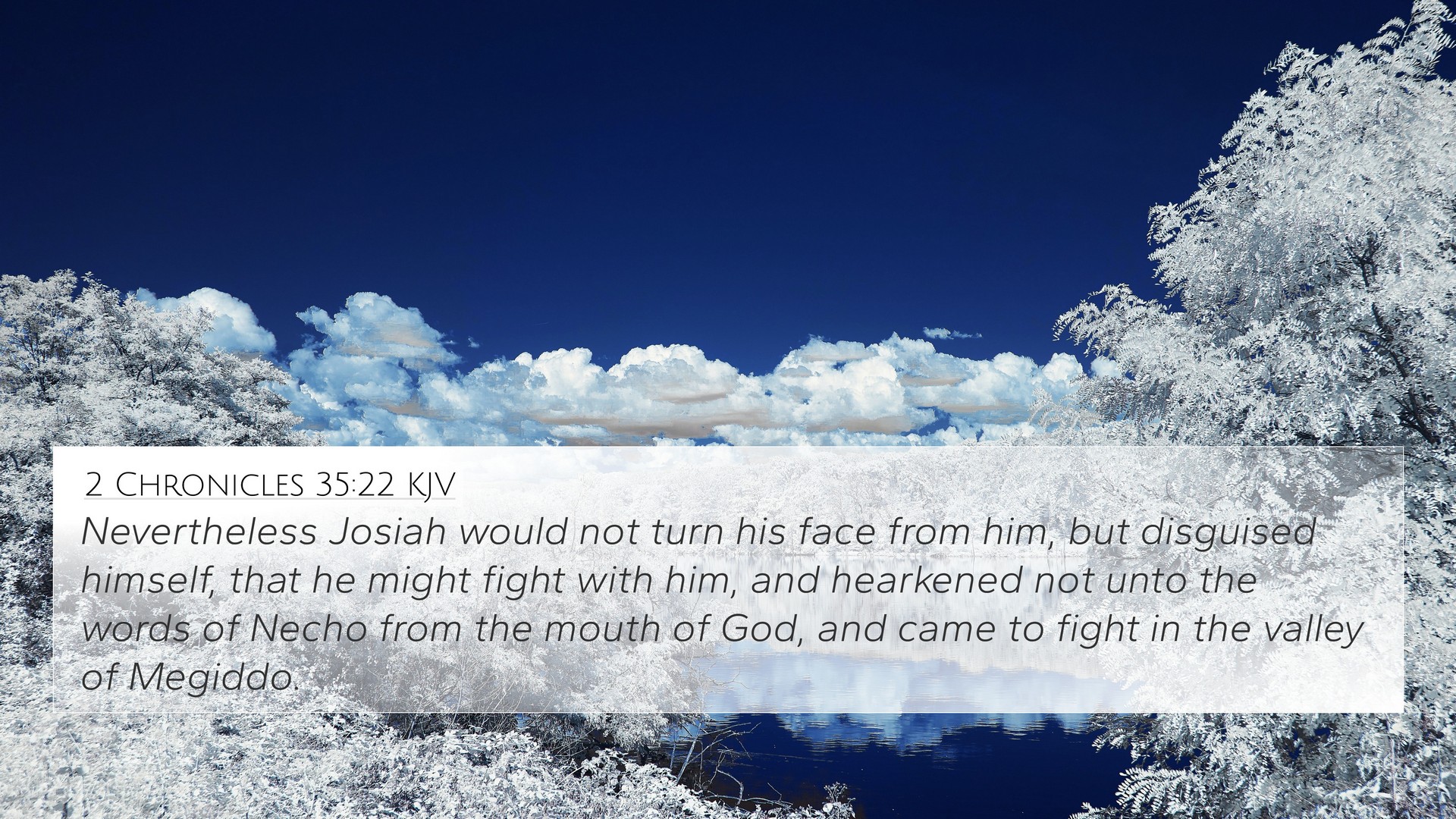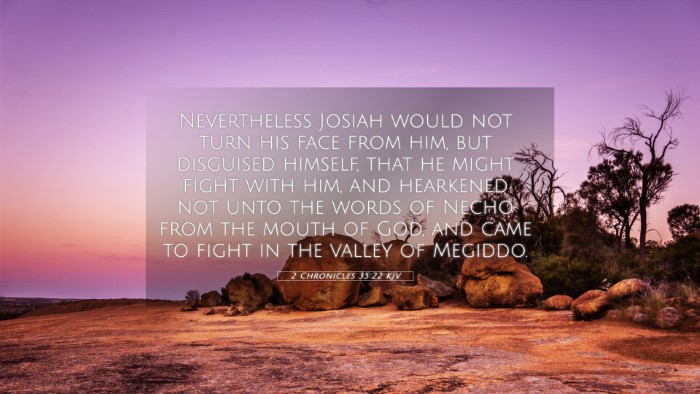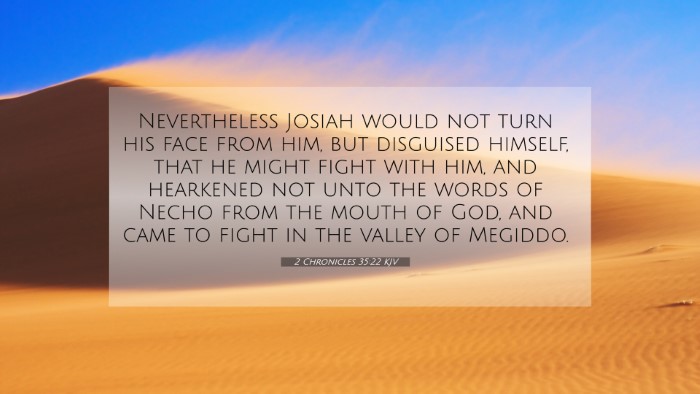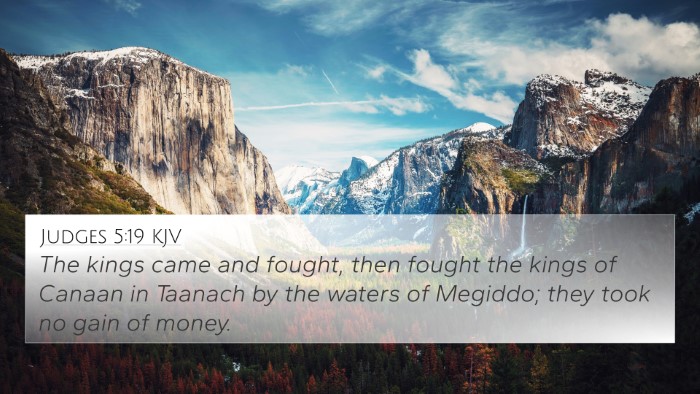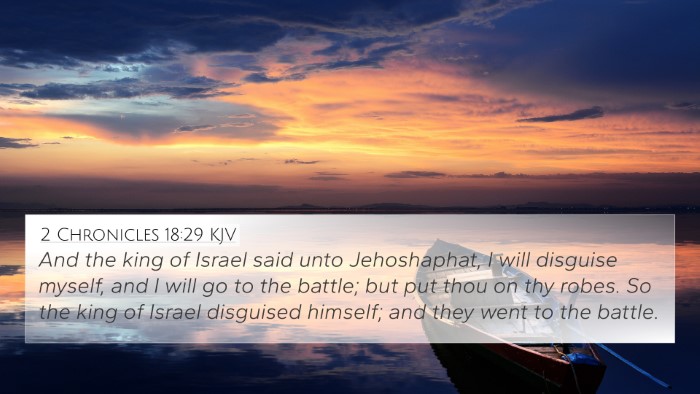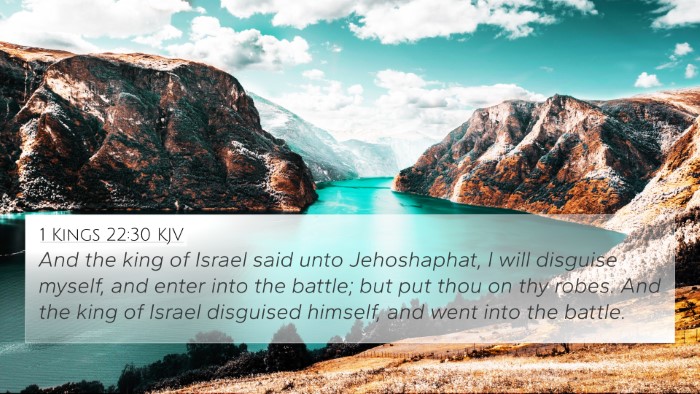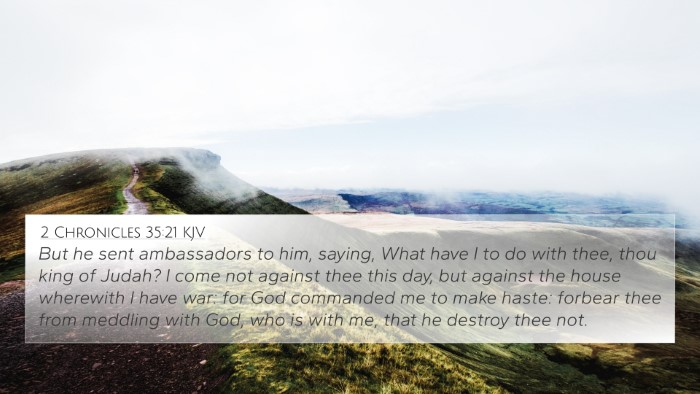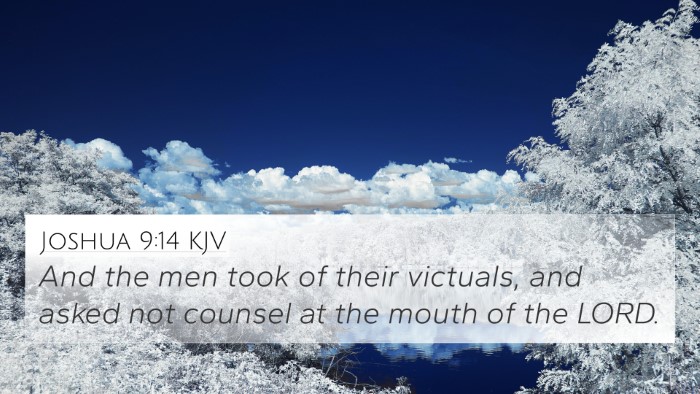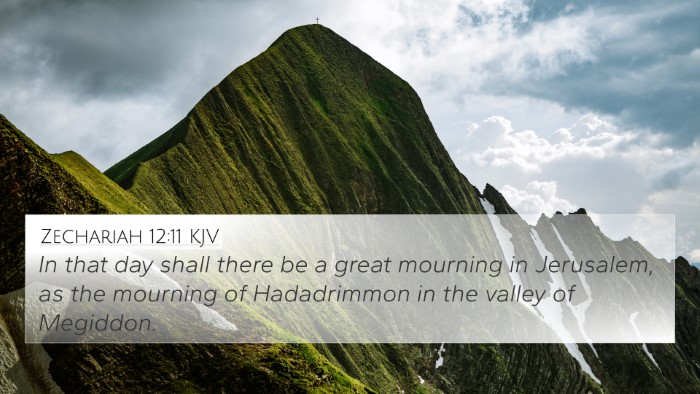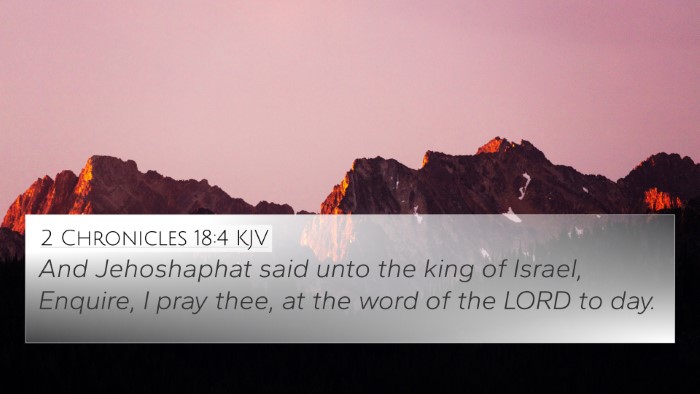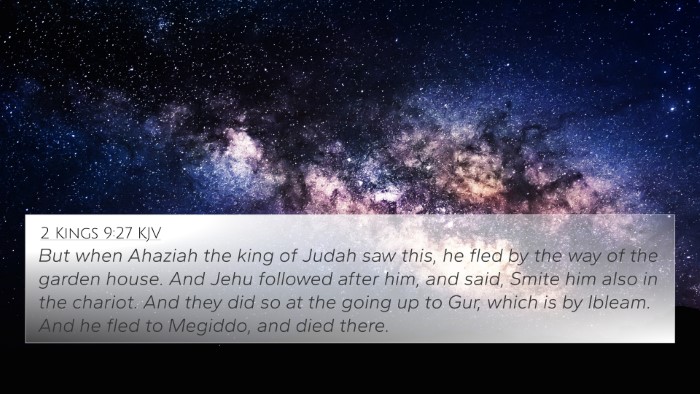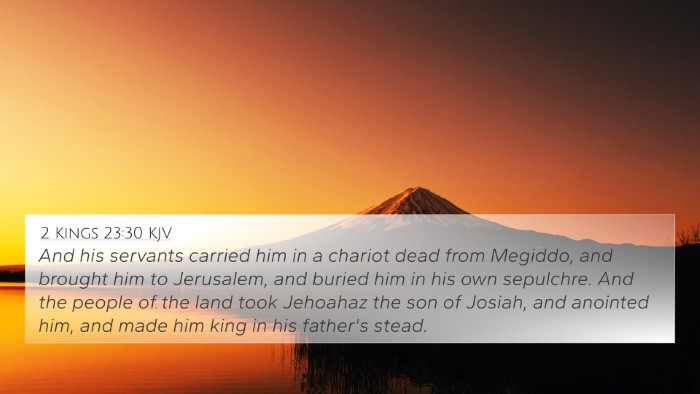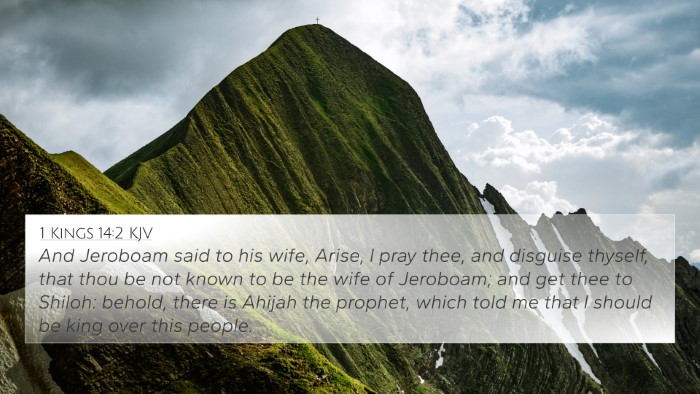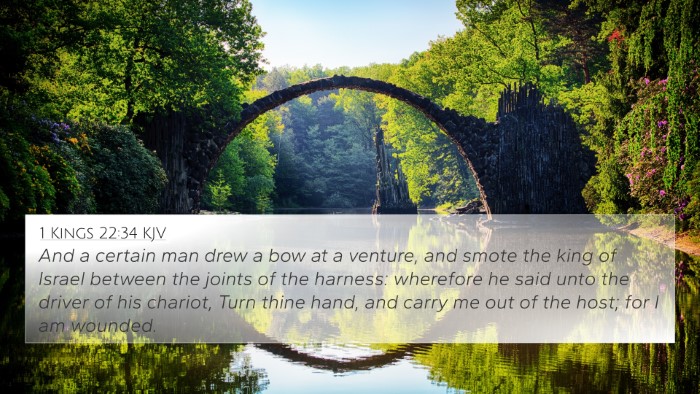Understanding 2 Chronicles 35:22
2 Chronicles 35:22 provides an important insight into the historical context of King Josiah's reign and his religious reforms. This verse serves as a bridge to understanding the complex relationships among biblical events, themes, and characters through cross-referencing between various scriptures.
Verse Context
This verse reads:
“But Josiah would not turn his face from him, but disguised himself, that he might fight with him: and hearkened not unto the words of Necho from the mouth of God, and came to fight in the valley of Megiddo.”
Commentary Insights
-
Matthew Henry's Commentary:
Henry notes that Josiah, despite being righteous, made a grave mistake by engaging in battle against Necho, who was acting on God's instructions. This emphasizes the importance of heeding God's messages, even when they come through unexpected sources.
-
Albert Barnes' Notes:
Barnes argues that Josiah's actions highlight a tragic flaw—his refusal to heed warning signs. The conflict illustrates the dangers of pride and disobedience, serving as a lesson for future generations about the folly of ignoring divine counsel.
-
Adam Clarke's Commentary:
Clarke elaborates on the historical implications, suggesting that Josiah's death marked the end of a significant period of reform and faithfulness to God among the Israelites. It serves as a poignant reminder of the consequences of not yielding to God's directives.
Thematic Bible Verse Connections
In studying 2 Chronicles 35:22, several thematic connections arise. Below are some significant cross-references that enhance understanding:
- 2 Kings 23:29: Discusses Josiah’s battles and ultimately his demise, linking to his earlier reforms and godly life.
- Isaiah 19:2: References the longstanding enmity and conflicts involving Egypt, connecting to Necho's role in the narrative.
- 1 Chronicles 10:13-14: Highlights the consequences of rejecting God's commands, paralleling Josiah's disobedience.
- Ezekiel 18:30: Calls for repentance, which Josiah failed to undertake in this situation, showcasing the need for discernment.
- Jeremiah 22:10: Reflects on mourning for one's king, which resonates with the sorrow following Josiah's death and its impact.
- Revelation 16:16: Mentions Armageddon, thus creating an eschatological link to the valley of Megiddo where Josiah fell.
- Lamentations 5:16: Speaks of the consequences of sin, invoking the somber mood that followed the tragedy of Josiah’s fate.
- Deuteronomy 17:14-20: Provides guidelines for kings in Israel, emphasizing the necessity of obedience to God's law.
- Romans 15:4: Discussively refers to the importance of Old Testament narratives for instruction, which includes the lessons learned from Josiah's life.
- John 10:10: The thief's desire for destruction contrasts with God's intent for abundance, linking to Josiah’s sacrifice.
Cross-Referencing Methods
To fully comprehend the implications of 2 Chronicles 35:22, utilizing tools for Bible cross-referencing can significantly enhance one's study. Here are some suggested methods:
-
Bible Concordance:
A concordance allows you to locate specific verses and understand their usage in different contexts.
-
Bible Cross-Reference Guide:
Such guides offer pre-compiled lists of verses that connect thematically or contextually.
-
Bible Reference Resources:
Various resources can help in identifying scriptures that illustrate similar themes, enhancing comparative study.
-
Using Study Bibles:
Study Bibles often contain footnotes and references to known cross-referenced passages that can lend insight.
-
Analytical Bible Study:
Engaging in detailed studies by comparing verses side-by-side brings deeper meanings to light.
Conclusion
2 Chronicles 35:22 serves as a pivotal moment in the narrative of Josiah, underscoring the necessity of obedience to God's commandments. Through the examination of this verse and its cross-references, one can gain insight into the overarching themes of faithfulness, obedience, and the tragic consequences of disobedience. The interplay of these biblical texts reveals a rich tapestry of divine instruction and human experience, encouraging believers today to engage deeply with scripture for a fuller understanding of God's message.
